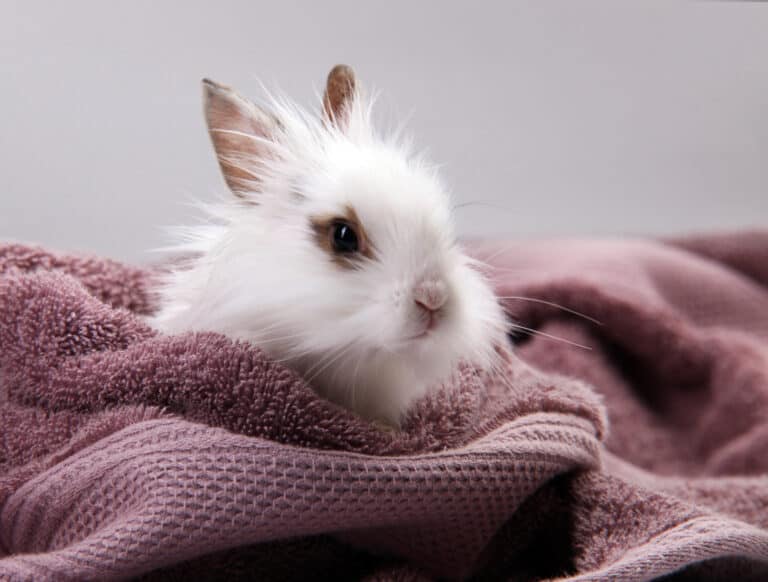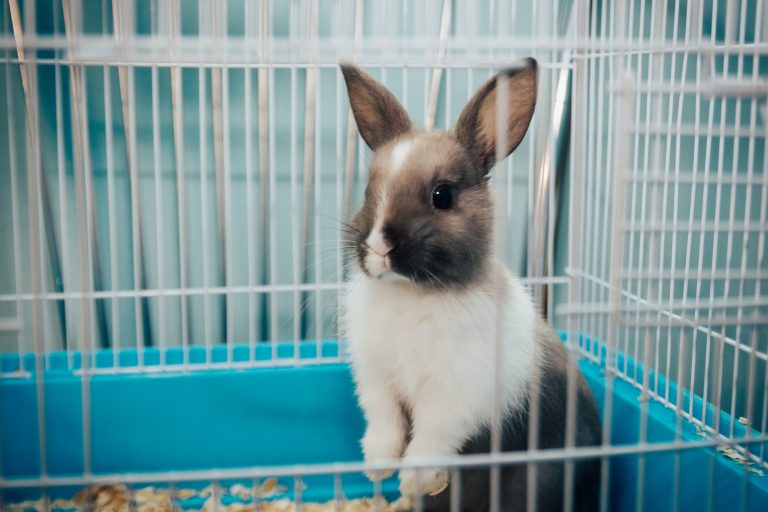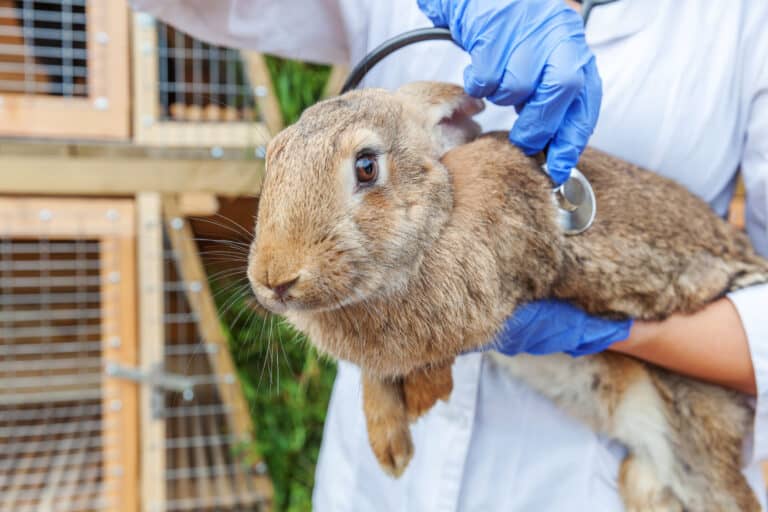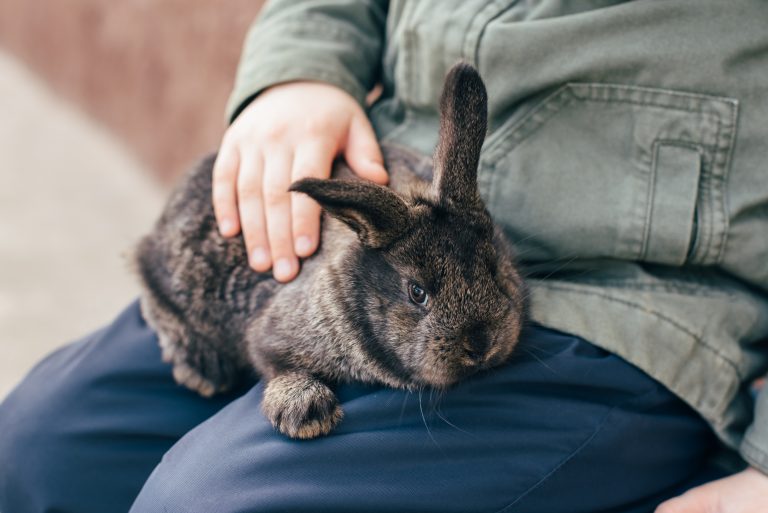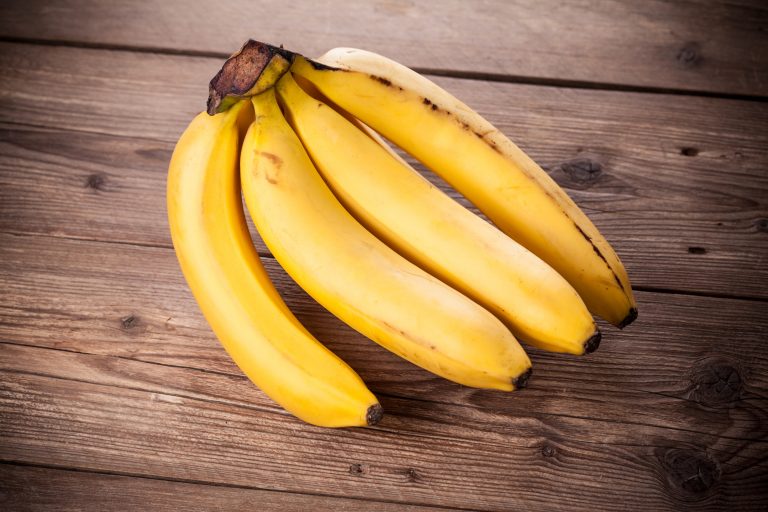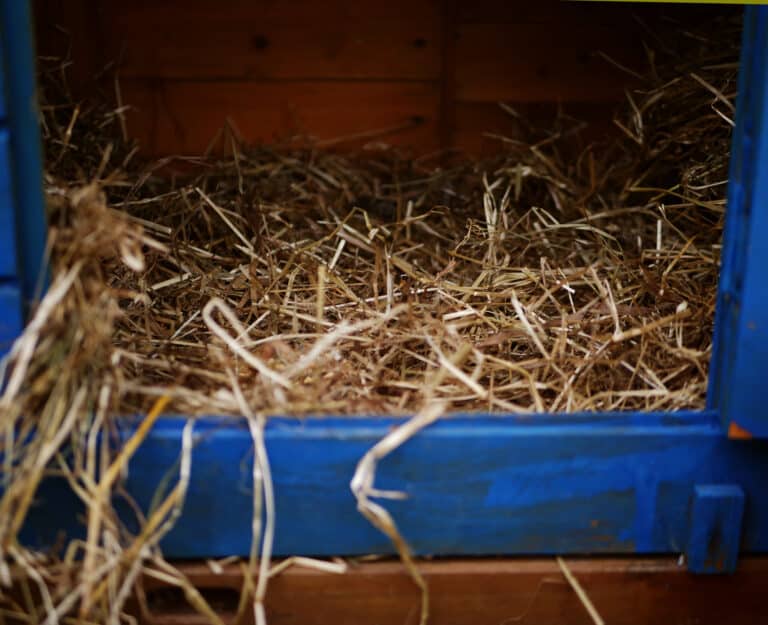Do Rabbits Need Shots?
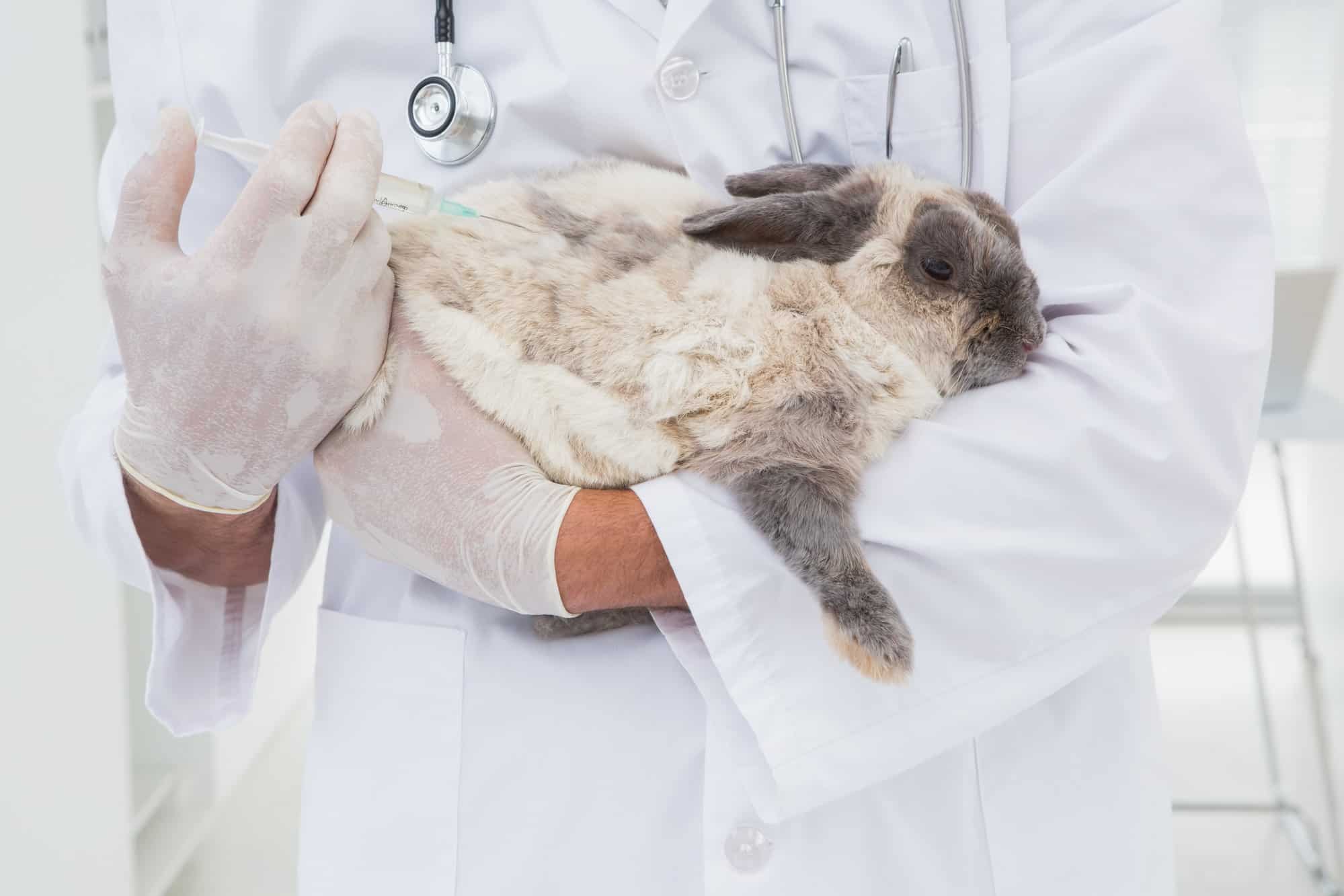
The popularity of rabbits as companion animals keep rising, and it’s easy to see why. Aside from being cute and fluffy, their docile nature makes them excellent fur buddies. Still, like with any pet, your bun requires more than cuddles and hugs. Aside from feeding, housing, and grooming your precious baby, you’ll have to consider if your rabbit needs shots.
The topic of vaccinations can be a bit confusing. Does your pet really need them? What type should he get? Are vaccines even safe? These questions usually arise in the minds of animal lovers, especially those who are new to taking care of fur babies.
To give you a better idea about your bun’s jab requirements, let’s explore the topic of rabbit shots together.
This post contains affiliate links. Affiliate links support Every Bunny Welcome at no additional cost to you. I receive a commission if you choose to make a purchase through these links.
Do Bunnies Need Shots?
In the U.S., you’re not required to have your rabbits vaccinated, unlike in certain parts of Europe and Australia. That’s because the diseases the shots prevent are not prevalent in the United States. However, if there are outbreaks of the deadly ailments in your area, vaccines will safeguard your pet’s health. The protection the vaccines offer is essential as the conditions are contagious and cause intense suffering to rabbits.
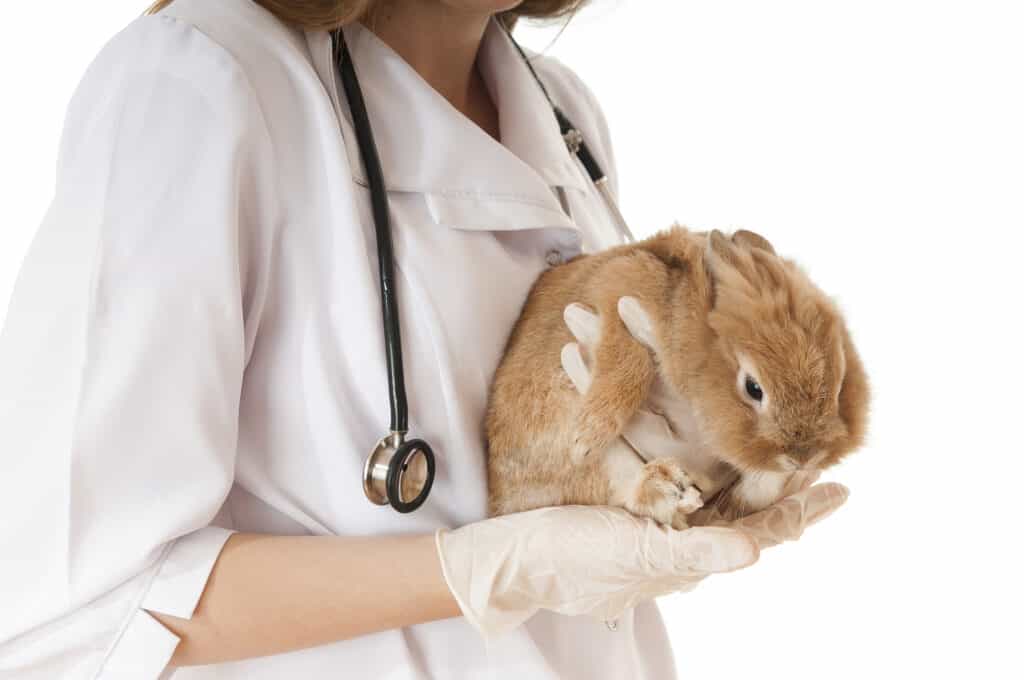
What Shots Do Rabbits Need?
Rabbit vaccinations help prevent potentially fatal diseases. Initially, the viruses for these deadly conditions were used in Europe and Australia to control the wild rabbit population. Unfortunately, the viruses spread to other areas of the globe, with the diseases they cause appearing in some regions of the U.S., particularly around the Pacific Coast and Southwest regions. Vaccines are essential because there are no effective treatments for these lethal ailments.
The Three Potentially Fatal Diseases
Myxomatosis
Myxomatosis is a viral disease that’s spread to rabbits by blood-sucking insects, such as fleas and mosquitos, and through direct contact with infected buns. Sadly, rabbits who get Myxomatosis have minimal chances for recovery, and most vets recommend putting these bunnies to sleep. That’s why shots are crucial.
Vaccinating your pet does not guarantee that he won’t get the disease, but it lessens the severity of the symptoms if he does fall ill from it.
Rabbit Hemorrhagic Disease (RHD)
Rabbit Hemorrhagic Disease, also known as Rabbit Viral Hemorrhagic Disease, is highly contagious. It can be spread by other insects and animals and also by contaminated objects, such as clothing, shoes, and car tires.
As its name implies, Rabbit Hemorrhagic Disease causes internal bleeding in rabbits and is almost always fatal. There are two strains of the disease, RHD1 and RHD2, so your bun will need two different shots.
When Should Your Rabbit Get the Shots?
Bunnies can be vaccinated starting at five weeks old, and it’s best to do this as soon as possible to make sure that your pet doesn’t catch the diseases before he gets his shots. To gain immunity against the deadly viruses, rabbits need two separate vaccines. One is for Myxomatosis and RHD1, which can be administered when your bun is five weeks old. The other vaccine is for RHD2 and is usually given when your bun is 10 weeks old. Yearly boosters follow these shots to maintain the protection they provide.
In 2020, a new vaccine was released that effectively protects against Myxomatosis, RHD1, and RHD2 with just one shot. The combined vaccine can be given to rabbits who are 5-7 weeks old. After that, your bun will need a booster shot every year.
Side Effects
Like all vaccines, the shots that protect your bun from lethal viruses can cause some side effects. However, it’s good to note that these side effects are relatively mild and usually temporary.
The side effects of the Myxomatosis vaccine may include the following:
- Fever
- Appetite loss
- Swelling at the vaccination site
Shots of Rabbit Hemorrhagic Disease can produce the following side effects:
- Appetite loss that can last for around 24 hours
- Reaction signs at the injection site, such as irritation, hair loss or scabbing, and swelling
- Low energy levels
- Digestive upsets
- In extreme cases, death
Fortunately, severe reactions are generally very rare.
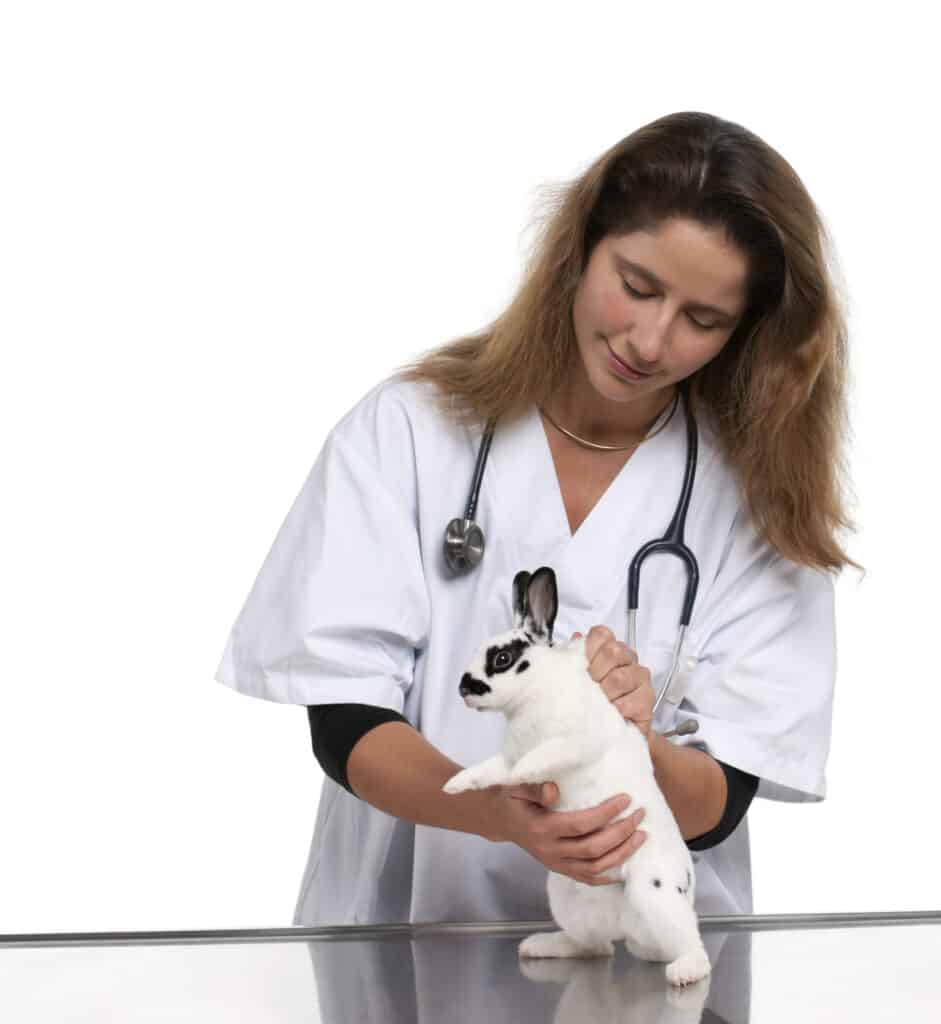
Taking Your Rabbit to the Vet for the Shots
The vaccination appointment is actually an excellent opportunity for you to find out how your rabbit is doing, as the doctor will do a thorough examination. The vet will usually take note of your pet’s weight, ask you questions about his food and water intake, and look at the condition of his teeth.
After the doctor has determined that your pet is fit and healthy, the vaccine will be administered. It’s a quick and straightforward procedure. The needle goes under the skin at the back of the neck, and it’s likely that your bun won’t even feel the jab. Still, being in a strange place can be stressful so take the time to calm your rabbit and make sure that his carrier is dark, warm, and cozy.
How Much Do Rabbit Shots Cost?
The amount you’ll need to spend for the shots vary depending on your area. But, on average, expect to spend between $40-$60 for the yearly vaccinations.
Are Rabbit Vaccines Safe?
No one can give a 100% guarantee that the shots are safe. That’s because no vaccine is perfect. However, the diseases the vaccines prevent are more dangerous and can do more harm to your pet.
Tips to Keep Your Rabbits Safe and Healthy
Despite the protection offered by your rabbit’s shots, you’ll still need to be vigilant against diseases to ensure that your bun stays healthy.
The following practices can help you attain that goal:
- Keep up your pet’s annual booster shots.
- Clean and disinfect your pet’s cage and surroundings with a rabbit-friendly disinfectant.
- Keep pests and insects away from your pet. Ask your vet’s advice regarding flea treatments for your bun and install screens to shut out disease-carrying flies and mosquitos.
- Avoid letting your pet come into contact with wild rabbits or sick domestic rabbits.
Not even the best of care can keep your rabbit away from harm. Still, there are some things you can do to ensure that he lives to a ripe old age. Getting him his shots is one of them.
More on Rabbit Care
- How Long Do Flemish Rabbits Live: Giant Breed Facts
- Complete Guide to the Best Hay For Rabbits: Reviews & More
- Are Rabbits Rodents? Find Out More About These Small Mammals
- Is Oat Hay Good for Rabbits? Complete Guide to the Best Hay
- Why Do Rabbits Lick You? 11 Reasons for This Common Behavior
We hope you enjoyed this post! If you did, will you give it a share or two 🙂 Thank you! ~from Every Bunny Welcome


